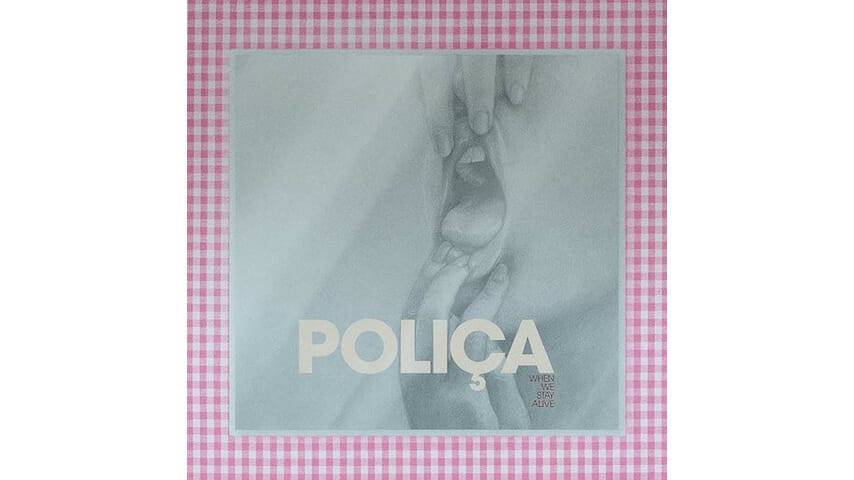Poliça Unpack Trauma on When We Stay Alive
The synth-pop group don’t shy away from messiness and chaos on their difficult album

When We Stay Alive opens with a wild ride. Frontwoman Channy Leaneagh is driving, quaking with turbulence, as she predicts what’s in store: “Tasting blood of the violence to come.” The track, in all its grisly carnage, isn’t one of defeat; instead, it echoes with palpable appetite. “See how she’s leading,” Leaneagh recites on the track’s chorus. She wades through the filth of modernity, noticing rot in the eyes of a passersby and imbibing in the ash of the dead. It’s all very Baudelaire; like his poem “The Carcass,” Leaneagh’s “want” for survival arises from the sewage of life.
Since 2016’s United Crushers, Poliça have centered the political landscape in their sound, in contrast to their original two albums which explored cultural hot topics through a personal lens. When We Stay Alive isn’t really either of those things, but is kind of a blend of both ideas—it’s an intensely personal record, one about trauma and the impossibility of safety in a rapidly darkening world. You could read these ideas as political, in the way that we can politicize our own bodies, our stories.
But the album is moreso a naturalistic account of experience as opposed to the sweeping, zoomed out approach on United Crushers, giving the record a less pedantic, more raw sense of authenticity. It doesn’t sound like a record someone set out to make for the purpose of highlighting issues of social justice, inequality or police brutality, and it instead toys with complex, political ideas from a first-person perspective. It feels very much on the ground, and avoids the flippant, hands-up nature of some of the tracks from Music For The Long Emergency.
Poliça is scuzzy unlike ever before, a little rough, a little dirty—the record sounds, at times, like maladaptive coping, and other times like an eager joyful embracing of trauma. The production of When We Stay Alive is often inconsistent: Some of the band’s best songs to date are here, and at other times it all feels confused, perhaps willfully so. “TATA” quakes with steelpan, a new percussive sound for a group branded on double-drums, while “Fold Up” never seems to take off—Leaneagh’s voice is too quiet, battling against another faded vocal track.
Frontwoman Channy Leaneagh discusses the album as if it was made as a form of therapy: After a fall from her roof that left her in a brace for months, she was encouraged by her doctor to rewrite her story. When We Stay Alive represents that rewrite, but it doesn’t sound revisionist—it sounds quite honest, and often stumbles over its own pain and anxiety as it trips towards healing. These imperfections, though, are what give the record character and a sharp personality. In a way, it functions as a question and response: What are my true feelings, and what is the process for disseminating that?
-

-

-

-

-

-

-

-

-

-

-

-

-

-

-

-

-

-

-

-

-

-

-

-

-

-

-

-

-

-

-

-

-

-

-

-

-

-

-

-








































